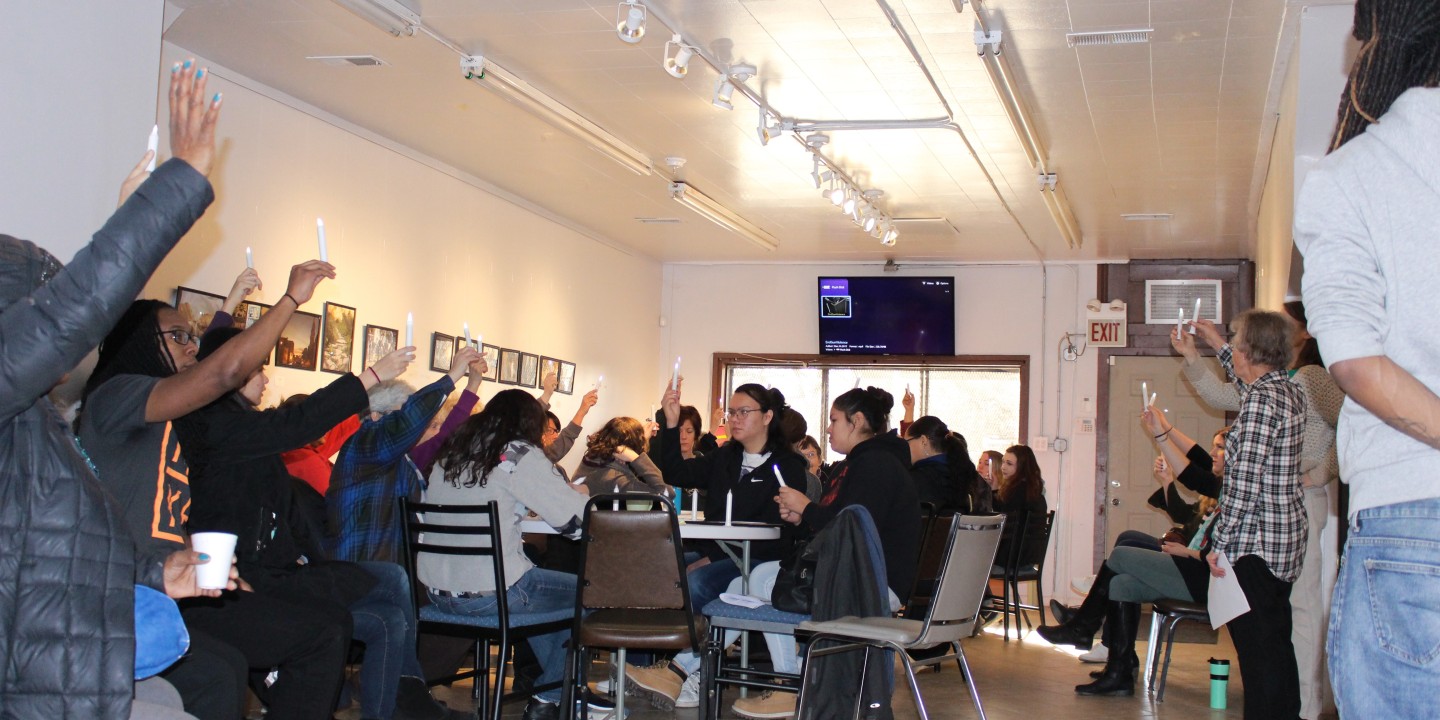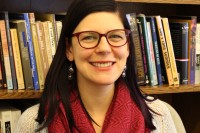Chicago vigil marks Sandy Hook anniversary with local gun violence survivors
“If you are a direct victim of gun violence, you have a right to be heard,” said a grieving mother who has engaged in advocacy with people from Newtown, Connecticut.

Among hundreds of vigils across the United States marking the fifth anniversary of the mass shooting at Sandy Hook Elementary School on December 14, one in Chicago included people deeply affected by gun violence in their own families and neighborhood.
“When we honor the Sandy Hook victims we also have to honor the resilience of the survivors,” said Maria Pike, whose 24-year-old son Ricky Pike was shot and killed in Chicago in August 2012, a few months before the violence at Sandy Hook. “My life changed completely the day he was murdered. He gave me a job to do.”
Read our latest issue or browse back issues.
Over the past five years, she has engaged in advocacy on gun violence with people from Newtown, Connecticut, including a few of the parents whose children were among the 20 gunned down in the school that day along with six educators.
“The attention given to the city of Newtown was immense,” she said. They began to ask themselves why they were getting so much attention when survivors in other places were getting so little, she said. Newtown residents shared those resources by funding trips with other survivors to advocate with legislators in Washington, D.C.
“If you are a direct victim of gun violence, you have a right to be heard,” she said.
Pike is a volunteer partnering with Newtown Action Alliance to organize vigils each year on the anniversary of Sandy Hook. She was aware of 268 this year—a drop from 1,200 two years ago. She guessed that people are weary from feeling that they are working on many activist causes this year. Among the vigils that did take place this year, there was also a national interfaith clergy witness at the National Rifle Association headquarters in Fairfax, Virginia.
The vigil where Pike spoke in Chicago was hosted by Precious Blood Ministry of Reconciliation, a restorative justice organization in Back of the Yards, which is among the neighborhoods that had the highest percentage of Chicago’s more than 640 homicides in 2017, most of them gun deaths.
“This community is a community that is deeply impacted by gun violence,” said Dave Kelly, executive director of the reconciliation ministry. People in the area live with the trauma daily, which causes physical and mental health problems. “You’re constantly on guard, and that’s exhausting.”
The vigil took place in a gathering space for community meals and discussion, where the walls and side tables display art created by people affected by violence and incarceration.
Each person in the room lit an electric candle as they named a survivor or victim of violence. One of the Precious Blood staff members named a youth involved in their ministries who died last year. Two young men named close friends who had been shot and killed in the neighborhood. People also lit their candles in prayer for perpetrators, for people in the area who feel afraid walking outside, and for lawmakers to enact gun-safety laws.
“I pray that we recognize that we are the ones who have the power,” said Janet Ryan, a Franciscan sister who works with the ministries’ education programs. “Congress has no power that we don’t give them. This is heartbreaking, it’s tragic, and we can change it.”
In addition to supporting legislative advocacy by survivors, Precious Blood works to prevent gun violence locally through “relentless engagement” with youth, as the executive director put it. Kelly noted that this is in contrast to some organizations and ministries that have certain behavioral expectations before youth can be part of the program. A challenge for Precious Blood is being a restorative justice organization, one that stays in relationship with both victims and perpetrators—who are often not easily separated.
“A lot of the families we work with have both buried someone and are visiting someone who is locked up,” Kelly said. The difficulty with not taking sides is especially apparent when they go to court with families. “When you’re the bridge you can get trampled on from either side.”
Kelly, who is a priest, serves as a chaplain in the local juvenile detention center and county jail, visiting those who have been accused of crimes, both the innocent and the guilty. For those who are convicted and imprisoned, he follows up with as many as he can with visits.
“One of our young men who just came home after 20 years, he works with us now,” Kelly said. The man had engaged with a trauma-informed anti-violence curriculum with fellow inmates and was now studying it with other formerly incarcerated people in the neighborhood and with local youth through Precious Blood ministries.
What they hear from young people, including those who have gotten caught up in violence, is to not isolate them from the community, Kelly said.
“Regardless of that act or multiple acts they’re a part of us,” he said. “There’s that common humanity.”
A version of this article appears in the January 17 print edition under the heading “Responding to gun violence.”







